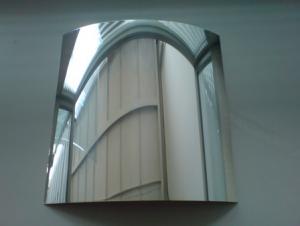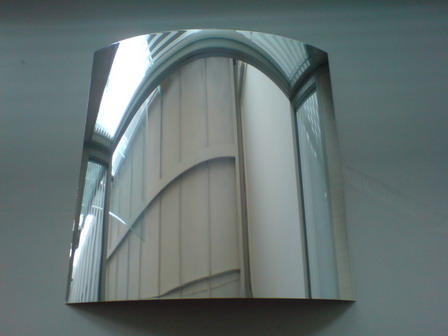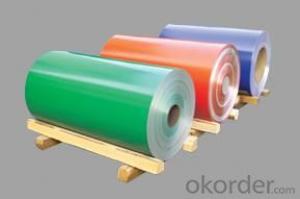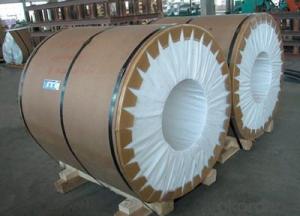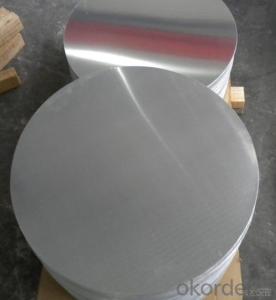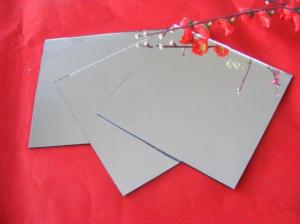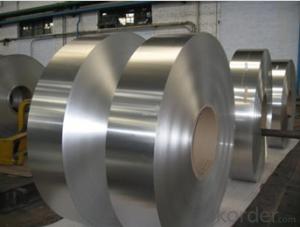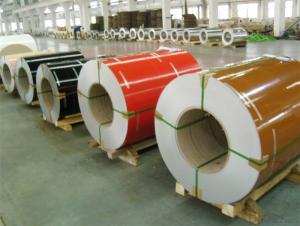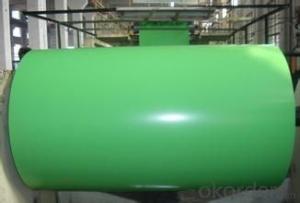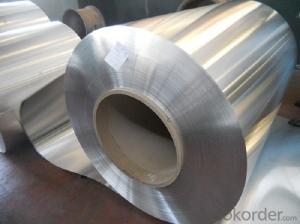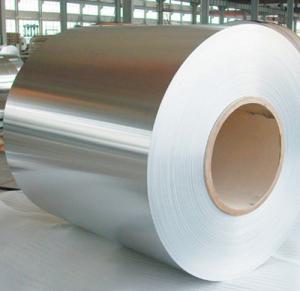All Aluminum Coil - Mirror Aluminum Coil
- Loading Port:
- China Main Port
- Payment Terms:
- TT OR LC
- Min Order Qty:
- -
- Supply Capability:
- -
OKorder Service Pledge
OKorder Financial Service
You Might Also Like
Packaging & Delivery
| Packaging Detail: | Standard Export Packaging or According to Customers' Requirements |
| Delivery Detail: | 30 days |
Specifications
Aluminum mirror sheet
1.Provide all kinds of aluminum mirror sheet
2.High quality
3.Reasonable prices
4.Great services
We provide all kinds of aluminum mirror plate!
We can supply ALplate/coil/foil of more than 10 alloy bands including 1xxx, 3xxx, 5xxx, 6xxx and 8xxx
series. The main products include aluminum sheet, coil, foil, air-container foil, cable foil, electronic capacitor foil, blister
foil, flexible packaging foil, CTP stock, litho stock, cap stock, tread plate, embossed coil, mirror panels, cans cover
materials, aerospace aluminum, mold aluminum materials, etc. at the same time, we process a variety of products
according to requirements of different customers.
- Q: How are aluminum coils protected against mechanical damage?
- To safeguard aluminum coils from mechanical harm, multiple methods are employed. One of the primary techniques involves the application of a protective coating or finish to the coil's surface. This coating acts as a shield, preventing any potential sources of mechanical damage, such as impact or abrasion, from affecting the coil. The coating itself can either be a standard paint or a specialized aluminum coating, offering enhanced durability and resistance to scratching or denting. Apart from the protective coating, aluminum coils may also undergo reinforcement with an additional layer of laminate or film. This supplementary layer provides an extra level of defense against mechanical damage, effectively warding off dents or scratches. The application of the laminate or film can occur during the manufacturing process or as a separate step following coil production. Furthermore, to minimize the risk of mechanical damage during transportation or storage, aluminum coils can be wrapped or packaged in protective materials like plastic or foam. These wrappings serve to cushion the coil and create a barrier against potential impacts or heavy objects that could cause damage. In conclusion, a combination of protective coatings, laminates, and packaging materials ensures the adequate protection of aluminum coils from mechanical harm. These measures are instrumental in preserving the integrity and quality of the coils, enabling them to effectively fulfill diverse applications.
- Q: What’s the loss rate per kg when processing aluminum coil to aluminum sheet?
- Weight=(0.8×1220×2440×2.7)/1000000=6.4kg
- Q: What are the common surface treatments for aluminum coils in the construction industry?
- Aluminum coils are widely used in the construction industry due to their lightweight, durability, and corrosion resistance. To improve their performance and appearance, various surface treatments are applied. In the construction industry, there are several common surface treatments for aluminum coils: 1. Anodizing is a widely used method that involves creating an oxide layer on the aluminum surface. This process enhances corrosion resistance, improves weather resistance, and provides coloring options. 2. Powder coating is a popular technique where a dry powder is applied electrostatically and then cured under heat. This results in a durable, smooth, and attractive finish that is resistant to chipping, fading, and scratching. 3. PVDF coating is a high-performance option that offers excellent weather resistance and color retention. It is commonly used in architectural applications where long-term durability and aesthetic appeal are desired. 4. Paint coating, using liquid paint, provides a wide range of color options and finishes. These coatings offer good corrosion resistance and can be tailored to specific design requirements. 5. Brushed finish is achieved by brushing the aluminum surface, creating a textured appearance. This process can be done mechanically or chemically, enhancing the aesthetic appeal of the coils. 6. Laminating involves applying a layer of protective film or laminate to the aluminum coil. This safeguards the coil from scratches, stains, and other damage during handling, transportation, and installation. These surface treatments not only enhance the durability and performance of aluminum coils but also offer customization options. Architects and designers can achieve their desired aesthetics while ensuring long-lasting performance in construction applications.
- Q: What is the coefficient of thermal expansion of aluminum coils?
- The coefficient of thermal expansion of aluminum coils is typically around 23 x 10^-6 per degree Celsius.
- Q: This question asks about the duration an aluminum coil can last before it needs to be replaced or becomes unusable.
- <p>The lifespan of an aluminum coil can vary significantly depending on its application, quality of the material, and environmental conditions. Generally, if properly stored and used, aluminum coils can last for several years without significant degradation. However, in industrial settings where coils are subjected to continuous use and harsh conditions, their lifespan might be reduced to a few years or even less. Regular maintenance and inspection can help extend the lifespan of aluminum coils.</p>
- Q: Can aluminum coils be coated with protective films?
- Coating aluminum coils with protective films is a prevalent practice across industries. These films, typically composed of materials like polyester or polyethylene, are applied to the coils using adhesive or heat bonding. Their main purpose is to safeguard the coils from damage, scratches, or corrosion during storage, transportation, or processing. Acting as a barrier, the films shield the coils from moisture, dirt, chemicals, and other external factors. Some protective films even offer temporary UV protection. Ultimately, this practice guarantees the preservation of the coils' quality and integrity throughout their handling and usage.
- Q: Is it possible to use an electric stove with an aluminum coil heater?
- <p>Yes, you can use an electric stove with an aluminum coil heater. However, it's important to ensure that the aluminum coil heater is designed for use with an electric stove. Aluminum is a good conductor of heat and can be used in heating elements. Make sure the heater is compatible with the stove's power requirements and that it's installed correctly to avoid any safety hazards. Always follow the manufacturer's instructions for installation and use.</p>
- Q: Classification of aluminium rolls for aluminium rolls
- To spare, so in order to cope with the development of science and technology, in order to contain other aluminum alloy elements, the International Federation of special aluminum strip showed that 9000 series of alternate series, waiting for a new product to fill the gaps of the 9000 series.
- Q: Can aluminum coils be used in chemical processing equipment?
- Yes, aluminum coils can be used in chemical processing equipment. Aluminum is known for its excellent corrosion resistance, making it suitable for use in many chemical environments. It is resistant to a wide range of acids, alkalis, and other corrosive substances. Additionally, aluminum coils are lightweight and have good heat transfer properties, making them ideal for applications where heat exchange is required. However, it is important to note that aluminum has limitations in certain aggressive chemical environments, such as strong acids like hydrochloric acid or sulfuric acid. In such cases, alternative materials like stainless steel or titanium may be more appropriate.
- Q: I have heard that aluminum may be a contributing agent in causing Alzheimer's disease, and that if we drink from aluminum cans, that we get aluminum into our system from them. It seems like this would be pretty easy to test in a laboratory, whether or not there are aluminum particles in the contained beverage. But I have heard or read that the inside of the cans are coated with something. So is this just typical uninformed rumors from the Internets, or is there anything to it? Hate to sound rude, but I am not really interested in opinions, like Well I don't think they would sell them if... or Oh yes, I think you get lots of aluminum from it. I am only interested in facts, not gut feelings or opinions.
- As mentioned, there is a coating on the inside of the can that prevents the drink from coming into contact with the can. You won't be getting any aluminum, HOWEVER in that coating is a chemical called BPA. This chemical has been shown to affect the body's hormonal systems and can affect the birth of future children, even if one is not presently pregnant. It has recently been declared a toxic substance in Canada and other countries seem to be slowly following suit in declaring it as such. This chemical is used because it is cheap. Governments tend to be very hesitant banning things that are harmful if they affect the way corporations can make money. I try to avoid cans for this very reason. When you drink from them you'll be getting trace amounts of this chemical. Trace amounts over time add up in the body, especially with this chemical.
Send your message to us
All Aluminum Coil - Mirror Aluminum Coil
- Loading Port:
- China Main Port
- Payment Terms:
- TT OR LC
- Min Order Qty:
- -
- Supply Capability:
- -
OKorder Service Pledge
OKorder Financial Service
Similar products
Hot products
Hot Searches
Related keywords
